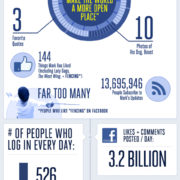All you need to know about Facebook IPO. In a cool infographic.
via Esquire
The initial public offering (IPO) of Facebook in 2012 marked a pivotal moment not only for the company but also for the technology and finance industries. As one of the most anticipated IPOs in history, Facebook’s debut on the NASDAQ attracted global attention, setting records and shaping the future of how technology companies approach public offerings.
A Historic Launch: Setting the Stage for Success
Facebook’s IPO was not just another financial event; it was a cultural milestone. The social media giant, founded in 2004 by Mark Zuckerberg and his Harvard peers, had rapidly grown from a college networking site into a global platform with billions of users. By 2012, Facebook was deeply embedded in the daily lives of its users, making its public debut a moment of immense curiosity and speculation.
At the time of the IPO, Facebook had already established itself as a dominant force in the tech world. The platform boasted:
- Over 900 million active users.
- A valuation of $104 billion, making it the largest tech IPO in history.
- Anticipated revenue streams from growing advertising innovations.
The IPO raised $16 billion through the sale of 421 million shares at $38 each. This valuation catapulted Facebook into the ranks of the world’s largest companies, signaling the increasing power of technology firms in the global economy. It also set the stage for future IPOs, creating a new standard for the industry.
Challenges and Controversies: Lessons Learned
Despite the excitement, Facebook’s IPO faced significant challenges. The debut was marred by technical glitches on the NASDAQ, resulting in delayed trades and confusion among investors. These issues tarnished what should have been a flawless debut for one of the most high-profile companies of the era.
The IPO also raised questions about Facebook’s long-term profitability. At the time, the company was experiencing growing pains as it transitioned from a startup to a publicly traded corporation. Analysts questioned whether Facebook could sustain its valuation and deliver consistent growth in revenue. Much of the skepticism revolved around:
- Advertising Revenue: Critics questioned Facebook’s ability to monetize its massive user base effectively. Mobile advertising, in particular, was a nascent field, and Facebook had yet to prove its capabilities in that domain.
- User Growth: With over 900 million users already on the platform, some feared that Facebook’s growth might plateau.
- Privacy Concerns: As a data-driven company, Facebook faced mounting scrutiny over how it handled user information—a concern that would continue to dog the company in the years to come.
Despite these challenges, Facebook navigated the storm. The company invested heavily in mobile advertising, introduced new revenue streams, and adapted its business model to meet investor expectations. Over the years, Facebook’s stock performance proved resilient, rewarding early believers.

